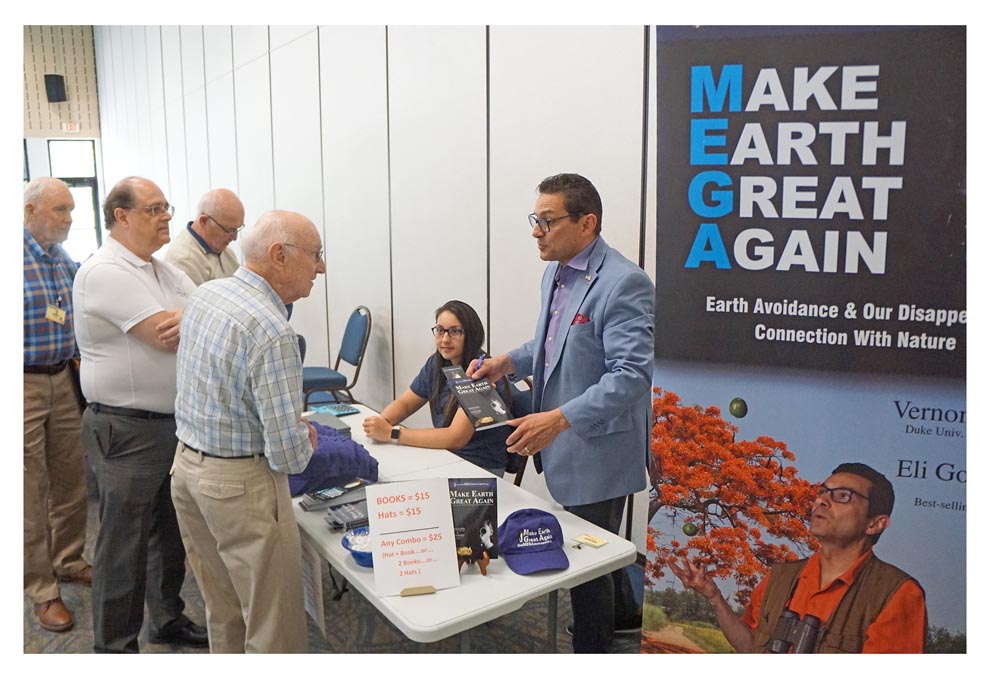
Vernon LaVia, of Aurora, is president of Defibrillators, Inc.. He is the author of Make Earth Great Again; earth avoidance and our disappearing connection with nature. The publisher is TG Publishing.
The earth’s population in just 50 years has more than doubled from 3.6 Billion to 7.6 Billion.
At the same time, humans have moved into cities at an alarming rate and gross consumerism has practically become a religion. As a result, most inhabitants cannot speak the language of nature, which has led to a 60% decline in all animal and plant life, biodiversity, on the planet. All in just 50 years!
Make Earth Great Again tracks how we got here and connects-the-dots on 26 biodiversity issues that are irrefutable. The book provides examples of how we can alter the arc of consumerism and curb waste, while also focusing on getting back to nature…instead of avoiding it.
LaVia is a hopeful creature, and we can all be hopeful, too, when we accept the fact that our very oxygen and water depend upon our taking action. Visit www.theMEGAmovement.org to discover more.
The price is $14.95, $7.99, Kindle.
Book signings: He has been touring the country signing at Barnes & Noble, Kiwanis Clubs, Sierra Clubs, nature centers, and any place with 20 or more folks where he can share his message about the Earth.
Books in the future: In this book, there is a chapter entitled “A New God” and it’s the God of Consumerism. So, he has outlined his next book to be: “The Religion Of Consumerism: More folks go shopping on Holy days than all those who attend churches, synagogues, or mosques!”
This book will make it clear that we are all complicit in standing by as we consume the earth’s resources at a faster pace than Mother Nature can replenish them, and if we continue on this path, our very oxygen will be threatened by the die-off of phytoplankton in the oceans.

